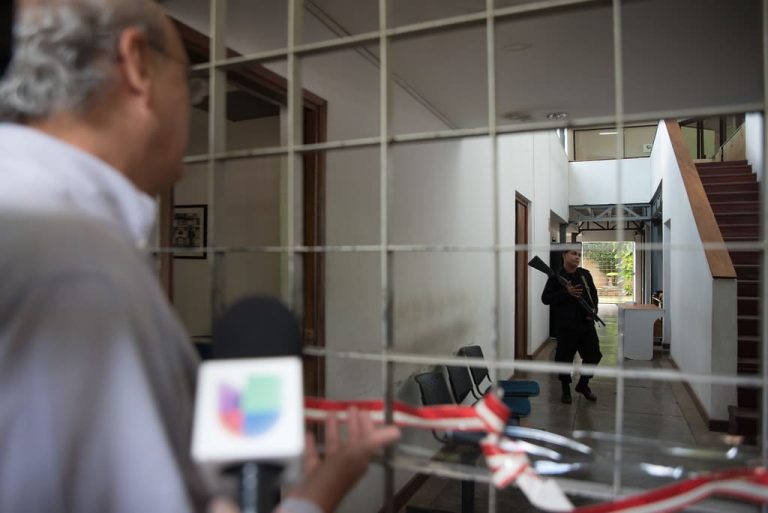5 de diciembre 2020

Children of Exile: The Births “Sowing Hope” in the Camp of Nicaraguan Farmers

PUBLICIDAD 1M
PUBLICIDAD 4D
PUBLICIDAD 5D
On behalf of journalists of Radio Dario, Confidencial and Esta Semana, 100% Noticias, and La Costenisima.

On behalf of journalists of Radio Dario
The Institute on Race, Equality and Human Rights presented Thursday a petition to the Inter-American Commission on Human Rights (IACHR). It requests that body declare “the international responsibility of the State of Nicaragua” for violating the journalistic profession in the country, “by restricting and limiting the freedoms of journalists and independent media outlets.”
“In the petition, 39 people are listed as victims of various acts of repression and violence, carried out by state agents and paramilitary groups. These include: directors, journalists and workers of Radio Dario, Confidencial and Esta Semana, 100% Noticias and Radio La Costenisima,” they assert in a statement.
The petition confirms acts of physical aggression, death threats, arbitrary arrests, constant surveillance, plundering, theft or destruction of equipment, as well as raids and illegal occupation of the victims’ property.
“It also shows the arbitrary exercise by the State in its three branches of power. As a consequence the lack of independence of the Judiciary and other public entities,” states the Institute.
The petition addressed to the IACHR describes the judicial proceedings filed by the media outlets 100% Noticias, Confidencial and Esta Semana, “in order to obtain justice and reparation for the violations to which they have been subjected.” It also explains the reasons why Radio La Costenisima and Radio Dario were forced to desist from them.
On December 13, the newsrooms of Confidencial & Esta Semana will reach two years of being illegally occupied by the Police. On December 19, 2018, a complaint against the police for theft and organized crime, was filed with the Public Ministry. However, no investigation has been launched in this regard.
Race and Equality also tackles in their petition the punitive laws promoted by the regime. “Under the guise of legality, they are used to illegitimately restrict the rights to freedom of expression, association and assembly,” the statement continues.
It refers to the “Law against Money Laundering, Finance of Terrorism and Financing of Proliferation of Weapons of Mass Destruction” (Law against Terrorism), approved in July 2018. And the most recent: “Law to Regulate Foreign Agents” and the “Special Cybercrimes Law.”
The Institute urges the IACHR to recommend to the State of Nicaragua “the adoption of measures of reparation for the victims, as well as measures of non-repetition to guarantee that the human rights violations denounced are not repeated.”
In July 2020, the United Nations High Commissioner for Human Rights, Michelle Bachelet, assured that “no progress has been observed in the situation of human rights in Nicaragua,” and that rather it has exacerbated with the Covid-19 pandemic.
“Of concern are also recent tax resolutions imposed against three media outlets, which could affect their continuity as news media,” it says.
Similarly, independent journalists have faced legal proceedings for “slander and libel.” One of them was Kalua Salazar, press officer of Radio La Costenisima, who was found guilty last September 23 and must pay a hefty fine. In a similar case, Journalist David Quintana, director of “Boletin Ecologico,” is currently facing a judicial process for libel.
Archivado como:
PUBLICIDAD 3M
Confidencial es un diario digital nicaragüense, de formato multimedia, fundado por Carlos F. Chamorro en junio de 1996. Inició como un semanario impreso y hoy es un medio de referencia regional con información, análisis, entrevistas, perfiles, reportajes e investigaciones sobre Nicaragua, informando desde el exilio por la persecución política de la dictadura de Daniel Ortega y Rosario Murillo.
PUBLICIDAD 3D